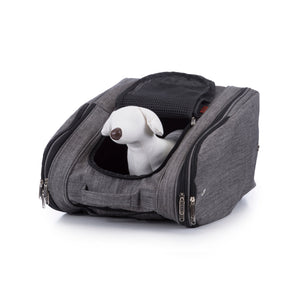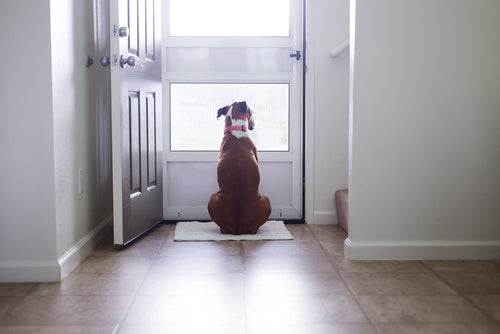
Article Detail
14 Mar
Good Dog Owners Make Good Neighbors
While you may love your dog, understandably, non-dog-owning neighbors may look askance when a new pup moves into the neighborhood. Without proper training and good public etiquette, a new pooch can become a neighborhood nightmare. Here are some tips on being a courteous dog owner.
AKC provides a wealth of tips and suggestions covering all facets of dog ownership. Responsible dog owners know the importance of training their dogs—a key component to keeping dogs safe and ensuring that the neighbors love (or at least tolerate) the fluffy fur-ball, too.Teach your dog manners
- Teach basic commands, like “sit,” “stay,” “come,” and “down.” Enroll in an obedience class so you and your dog can learn under a trainer’s guidance.
- Socialize your dog. Take him to the park, on walks around town, or anywhere people hang out so he’s comfortable in a variety of settings.
- Do what you can to prevent or mitigate excessive barking (more on this one later).
Clean up your dog’s waste. No one likes to step in a steaming pile of poop. Prevent your dog’s waste from ruining your yard, especially one you share with a neighbor, by training your dog to use a designated spot. If your dog like to let their bladder run in the grass, wash down the area with water to prevent it from dying/yellowing!Clean up after your dog
Don’t leave a barking dog outside. It’s not only unfair to the dog, it’s also annoying and rude for the neighbors. Dogs bark for a variety of reasons, and some breeds bark more than others. If your dog loves barking, it’s possible to identify each different bark and the meaning behind it.Control the bark box
Does your canine comment on everything in his world? Use training, exercise, or a combination of both to discourage excessive barking; however, the longer you wait to address the behavior, the harder it becomes to prevent.
- With patience and time, you can often identify what triggers your dog’s barking, whether he’s warning you about an intruder, greeting a friend with loud enthusiasm, seeking attention, relieving anxiety, or announcing his boredom. Each bark sounds a little different. Once you’ve identified the source, it’s easier to discourage the behavior.
- Build in exercise each day. Bored dogs bark to relieve built-up energy, so make sure you’re walking your dog, playing with her, and giving her plenty of active attention. Frisbee, anyone?
- If you know your dog barks for attention, ignore him when he’s vocalizing, because a hug, treat, or any kind of acknowledgement will only reinforce the behavior.
- Don’t use shock collars for training. They’re cruel and painful, and a determined dog will find a way to thwart one. Some trainers and veterinarians recommend citronella collars, which emit a puff of nontoxic citronella when the unit that sits against the dog’s voice box feels the vibration caused by vocalization.
- Avoid the temptation to shout at your dog when he barks, because he’ll think you agree with him and keep barking!
- When your dog barks, whistle or clap to get her attention. If you can redirect her focus to something else, like a toy, she may forget why she was barking and stop.
- If you’ve tried all these methods and your dog continues to bark excessively, reach out to your veterinarian or a trainer for assistance.
Leash your dog
Even if your area’s leash laws are lax, and you’ve had your dog for years and can predict all his moves, leashing your dog is good etiquette. Whether your dog transforms into a canine pogo-stick when meeting a new friend or glues herself to your side no matter what, leashing your dog ensures her safety and the safety of those around her. There’s a variety of leashes available on the market. To learn more about the five most common leashes you’re likely to use, check out this article.
Most dog owners agree that introducing and reinforcing proper public etiquette with your pup requires healthy doses of patience, love, and humor. Your canine companion will thrive with consistent, enforceable, and reasonable rules, and reward you with unconditional love, loyalty, and affection. Your neighbors will also appreciate the consideration you’ve given to them, their yards, and their eardrums.




